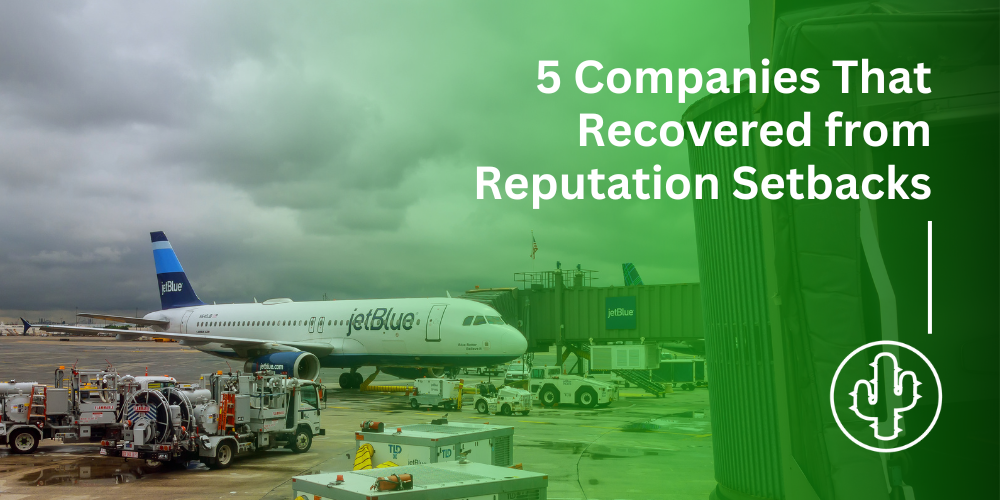Online reputation will become increasingly more important in 2024. Throughout history, businesses have consistently allocated resources towards boosting their public images. In an effort to provide valuable lessons from previous missteps, this article meticulously gathers five notable instances where leading corporations faced substantial public relations hurdles, only to emerge stronger, illustrating the resilience and adaptability necessary for recovery.
Johnson & Johnson
In 1982, the Tylenol brand faced a critical challenge when seven Chicago residents tragically lost their lives after consuming Extra-Strength Tylenol capsules that had been tampered with and laced with cyanide. This act of external sabotage wreaked havoc on the brand’s reputation, leading many to speculate that it might mark the end of Tylenol’s market presence.
In response to this crisis, the company took swift and decisive action by recalling 31 million bottles of Tylenol nationwide. Demonstrating a commitment to consumer safety and trust, they not only removed potentially dangerous products from shelves but also offered replacements at no cost. This customer-centric approach not only mitigated the damage but also resulted in an impressive 23% growth in their market share, showcasing the brand’s resilience and dedication to its consumers.
PepsiCo
Online reputation becomes a bigger issue every time you grow, and so it came as no surprise when PepsiCo had to face one of the greatest challenges since its existence. It happened in 1993 when a syringe was found in a can of Diet Pepsi in Washington State. This anomaly generated headlines, but it wasn’t until the same incident happened 50 more times across the nation that the media took notice.
Initially, both PepsiCo and the FDA were skeptical about the authenticity of these reports, convinced that such incidents were implausible since there were no cases of harm or emergency room visits. Despite the veracity of these rumors, the fear among consumers was real and palpable.
The brand continued to build their reputation by defending its record and producing a report, including video footage, on its canning process. This extra transparency was enough to convince customers that it was impossible to have tampered with a PepsiCo can by putting a syringe inside.
The falls experienced in their stock price recovered after a month.
JetBlue
In a notable incident from 2007, JetBlue faced a significant operational challenge when an ice storm on the East Coast led to the cancellation of 1,000 flights over the course of a week. Amidst this crisis, CEO David Neelman adopted a transparent approach, openly discussing the situation despite it being beyond the company’s control.
Rather than opting to withhold refunds in a bid to preserve profits, JetBlue showcased a deep dedication to customer satisfaction by providing monetary compensation. Further solidifying this commitment, Neelman took to the nation’s leading television programs, not only to keep customers well-informed but also to extend heartfelt apologies for any inconveniences caused by the company’s shortcomings.
BP Oil Spill
The underwater oil spill involving BP made the company the most hated in the US. It happened in 2010 at Deepwater Horizon. An underwater oil pipe burst, allowing millions of gallons of oil to flow into the sea. There were major environmental implications for the nearby coastline and the wildlife.
The side effects were incredible. In a short space of time, the CEO had quit, the firm had sold its assets, and it agreed to a $20 billion compensation scheme for the victims of the spill. And BP stations throughout the country saw a huge decline in sales. Many people thought that the company would have to fold.
By 2011, BP remarkably turned its financial fortunes around from a substantial $6 billion loss to reporting $26 million in income. In an effort to address its environmental impact, the company took significant steps towards becoming more eco-conscious. This included making its commitment to environmental sustainability a prominent feature on its website, showcasing to customers its dedication to learning from past mistakes and making amends.
Despite these efforts, BP still faces challenges in fully regaining public trust. Skepticism remains among a portion of the population, yet the company is making steady progress in convincing customers of its commitment to change, gradually winning back their confidence.
Target
The holiday season is always a favorite time of year for hackers. In 2013, it was Target that became the biggest victim. It had to admit to the general public that records for 40 million people, including debit card and credit card information, had been lost. This major security breach cost the company $148 million, and the CEO of the company lost his job.
But Target reacted in the right way by making changes to the company and publishing them. It revamped its security and technology departments so as to reduce the chance of such a leak happening in the future. 1,800 stores around the country were changed so as to accept credit cards with more security features. It put Target on the same security level as the banks.
By 2015, studies revealed that online sales had gone up by 40%, thus demonstrating that people are, once again, willing to trust this brand.
How would you bounce back from such a crisis?

